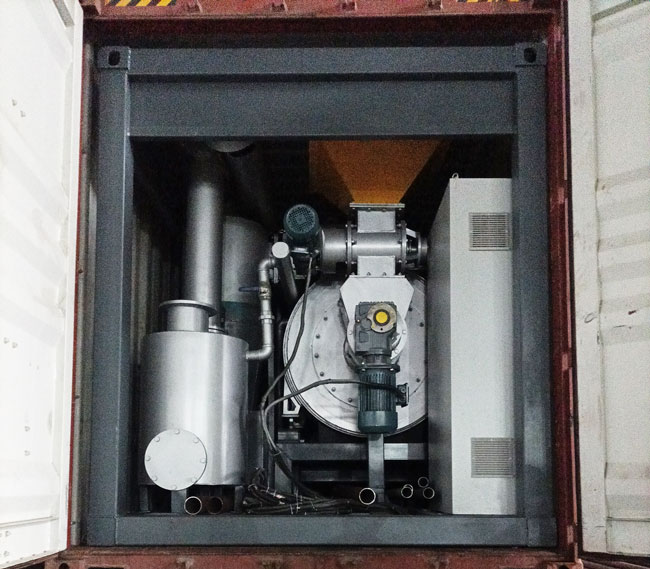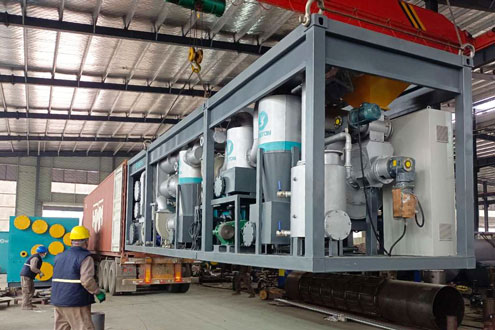The Environmental Benefits of Using Skid-Mounted Mobile Biochar Machines
As the world’s population continues to grow, so does the demand for food. This, coupled with climate change and soil degradation, is putting immense pressure on agricultural production. In recent years, biochar has emerged as a promising solution to these problems. When used in conjunction with mobile biochar machine, the benefits are amplified, resulting in environmental and agricultural benefits that cannot be ignored.

What is Biochar?
Biochar is a type of charcoal that is produced from the pyrolysis of organic materials such as wood, agricultural waste, and manure. This process involves heating these materials in a low-oxygen environment, which results in a solid, highly porous material that is rich in carbon. Biochar is then applied to the soil as a soil amendment to improve soil health, fertility, and reduce greenhouse gas emissions.
Why are Skid-Mounted Mobile Biochar Machines Good for the Environment?
Skid-mounted mobile biochar machines have made it easier for farmers and organizations to produce biochar on-site, reducing the costs associated with transportation and storage. Moreover, using these machines results in several environmental benefits, such as:

Carbon Sequestration
Biochar is known to be an excellent carbon sink, which means it can store carbon in the soil for centuries. The use of biochar, therefore, has the potential to significantly reduce greenhouse gas emissions by locking up carbon in the soil. Studies have shown that the application of biochar to agricultural soil can increase soil carbon storage, thus contributing to climate change mitigation efforts. View the Beston biochar equipment for sale.
Soil Health and Fertility
The porous structure of biochar allows it to act as a sponge, retaining water, and nutrients in the soil, thus reducing the need for synthetic fertilizers. Moreover, the addition of biochar can improve soil structure, creating a healthier soil environment for plant growth. The use of biochar has also been shown to enhance soil microbial activity, which is critical to maintaining a healthy soil ecosystem.
Water Conservation
Biochar’s high porosity also enables it to retain water in the soil, reducing runoff and erosion. This results in increased soil moisture, which reduces the need for irrigation, making it an effective tool for water conservation.
Case Studies
Several case studies have demonstrated the effectiveness of skid-mounted mobile biochar machines. One such study, conducted in Indonesia, found that the use of biochar increased maize yields by up to 73% while reducing the use of synthetic fertilizers by up to 50%. Another study, conducted in the United States, found that the application of biochar to forest soils resulted in increased soil carbon storage, decreased nutrient leaching, and improved soil structure. When you look for more options, click https://bestonmachinery.com/biochar-pyrolysis-equipment/.
Challenges and Limitations
While skid-mounted mobile biochar machines hold great promise, there are still some technical and economic challenges that need to be overcome. For instance, the quality of the biochar produced can vary depending on the feedstock and the process used. Moreover, the high cost of some machines can be a barrier to their adoption. Finally, there is a lack of policy and regulatory frameworks to promote the use of biochar, which has limited the widespread adoption of this technology.
Skid-mounted mobile biochar machines have enormous potential to improve soil health, increase agricultural productivity, and mitigate climate change. When coupled with the use of biochar, the environmental benefits are significant. While there are still some challenges that need to be addressed, the future of this technology is bright, and it holds great promise for sustainable agriculture and environmental sustainability.